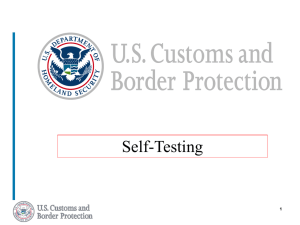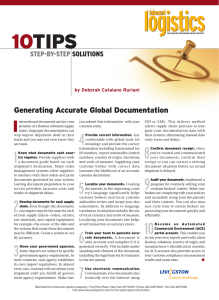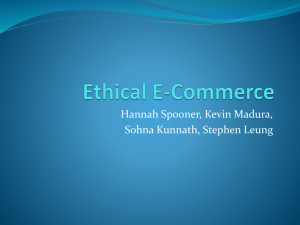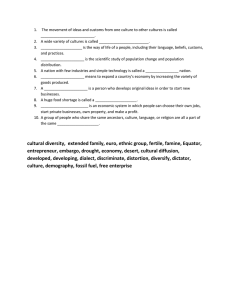AUSTRALIAN CUSTOMS AND BORDER PROTECTION NOTICE
advertisement
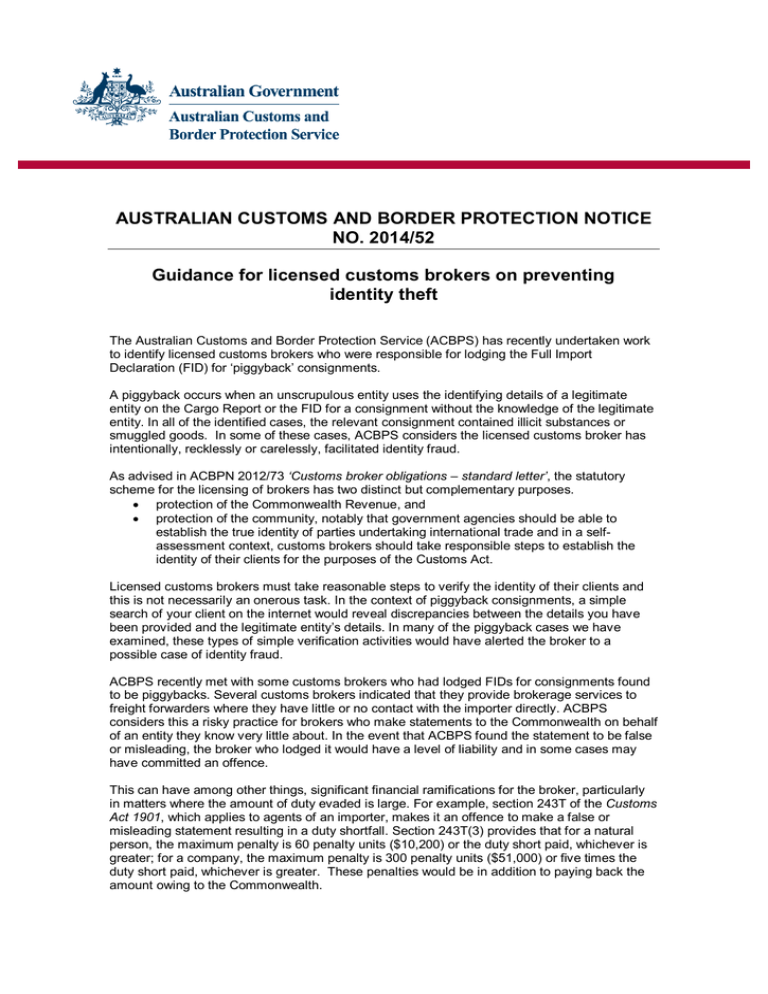
AUSTRALIAN CUSTOMS AND BORDER PROTECTION NOTICE NO. 2014/52 Guidance for licensed customs brokers on preventing identity theft The Australian Customs and Border Protection Service (ACBPS) has recently undertaken work to identify licensed customs brokers who were responsible for lodging the Full Import Declaration (FID) for ‘piggyback’ consignments. A piggyback occurs when an unscrupulous entity uses the identifying details of a legitimate entity on the Cargo Report or the FID for a consignment without the knowledge of the legitimate entity. In all of the identified cases, the relevant consignment contained illicit substances or smuggled goods. In some of these cases, ACBPS considers the licensed customs broker has intentionally, recklessly or carelessly, facilitated identity fraud. As advised in ACBPN 2012/73 ‘Customs broker obligations – standard letter’, the statutory scheme for the licensing of brokers has two distinct but complementary purposes. protection of the Commonwealth Revenue, and protection of the community, notably that government agencies should be able to establish the true identity of parties undertaking international trade and in a selfassessment context, customs brokers should take responsible steps to establish the identity of their clients for the purposes of the Customs Act. Licensed customs brokers must take reasonable steps to verify the identity of their clients and this is not necessarily an onerous task. In the context of piggyback consignments, a simple search of your client on the internet would reveal discrepancies between the details you have been provided and the legitimate entity’s details. In many of the piggyback cases we have examined, these types of simple verification activities would have alerted the broker to a possible case of identity fraud. ACBPS recently met with some customs brokers who had lodged FIDs for consignments found to be piggybacks. Several customs brokers indicated that they provide brokerage services to freight forwarders where they have little or no contact with the importer directly. ACBPS considers this a risky practice for brokers who make statements to the Commonwealth on behalf of an entity they know very little about. In the event that ACBPS found the statement to be false or misleading, the broker who lodged it would have a level of liability and in some cases may have committed an offence. This can have among other things, significant financial ramifications for the broker, particularly in matters where the amount of duty evaded is large. For example, section 243T of the Customs Act 1901, which applies to agents of an importer, makes it an offence to make a false or misleading statement resulting in a duty shortfall. Section 243T(3) provides that for a natural person, the maximum penalty is 60 penalty units ($10,200) or the duty short paid, whichever is greater; for a company, the maximum penalty is 300 penalty units ($51,000) or five times the duty short paid, whichever is greater. These penalties would be in addition to paying back the amount owing to the Commonwealth. So it is critical that licensed customs brokers undertake the necessary checks to ensure the accuracy of their statements to ACBPS. One way to reduce the likelihood of the facilitation of identity fraud is to deal with the importer (your client) directly. Many licensed brokers have also admitted to ACBPS that their focus had always been on building the business of the brokerage, not on the legalities and their obligations to ACBPS. While ACBPS acknowledges the competitive commercial environment that brokers operate in, this approach is of concern and may leave the broker and/or the brokerage liable for any offences committed against the Customs Act 1901 or in serious cases the Criminal Code. Under the conditions of your customs broker licence, if you become aware that information provided to ACBPS by, or on behalf of, a client is false, misleading or incomplete, the broker must, as soon as practicable after becoming aware of the error or omission provide written particulars of the incident to the CEO. You can report this information to CustomsWatch by calling 1800 06 1800 or by using the online form located on our website: www.customs.gov.au. If you have any enquiries concerning this notice, please contact the Director, Trade Enforcement Unit, on telephone number (03) 9244 9035. [SIGNED] Anthony Seebach National Manager Special Investigations and Programmes 27 October 2014
